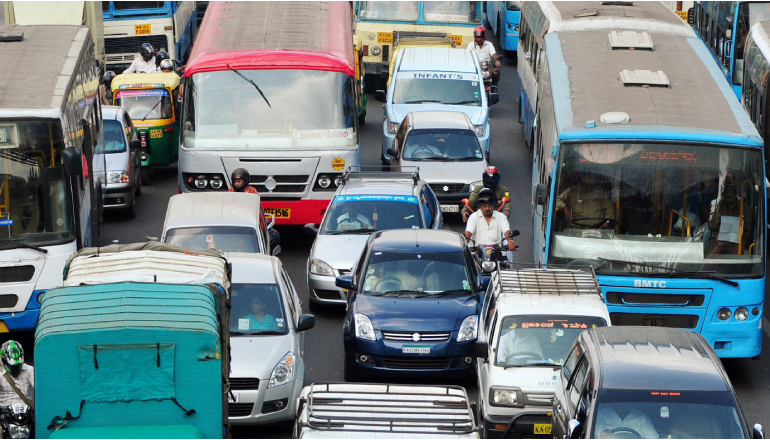Friends in Bengaluru, beware!
The traffic congestion in your city is going to get worse. The cloud over the IT capital may just get greyer. (Trevor Noah, the famous stand-up comic found the Bengaluru to be lush green).
The world is going sustainable. India too has set a goal to be Net Zero by 2070. Initiatives such as car pool do not just reduce the use of fossil fuel. They also play a detrimental role in improving the sustainability index of a city.
Among these developments, the news from Bengaluru come as an unwelcome surprise.
According to the transport department, using private vehicles with a white registration plate for commercial purposes is illegal. Translated, employees or people taking the same route to work, market, cinema or any other purpose, can no-longer share a private vehicle!
Bengaluru woes:
Bengaluru is already battling traffic congestion as are most metro cities in India. While, the other state governments are encouraging people to use shared resources, Bengaluru is taking a back seat.
I don’t want to argue about why the department succumbed to the illogical demand of the taxi unions to prohibit car-pooling. But I am certainly worried about the impact on climate, people’s lives and the infrastructure.
A Greenpeace report published in January 2022 warned that air pollution levels in Bengaluru are three to four times higher than the set World Health Organization (WHO) standards.
Fumes, and other particles emitted in the toxic exhaust will play further havoc in the lives of people. The Bengaluru Sustainability Forum, quoting a study has already warned that increased urbanization has led to urban heat islands and urban areas in the city were 2 degrees warmer than their rural counterparts.
It is a lament, but true. Bengaluru reeled under floods last year. There were lessons learnt. Reams of paper was used to pen key take-aways, one of which was certainly NOT PROHIBIT the use of car pool.
Like any other rapidly urbanizing metro, Bengaluru too has witnessed the impact of climate change.
The near draught like situation in major parts of Bengaluru this year. the unprecedented flooding that submerged most part of the city last year. These may be attributed to natural calamities. But unplanned urban planning marked by large-scale encroachment of lakes and drains has had an impact.
The city’s susceptibility to urban flooding has been highlighted in a number of studies and reports. According to a 2017 study, Bengaluru has lost 79 percent of its water bodies and 88 percent of its vegetation over the course of 45 years. As per government data, the city once had 260 lakes in total, but as of now, only 65 remain.
I believe that the onus to save the environment and the society is not just on the government and the governing bodies. We the people, too, play a part. And WE HAVE STARTED A SMALL MOMENTUM WITH CAR POOL!
I am not sure of the most recent figures. But I can say with certainty that carpooling has greatly reduced energy use, carbon footprint, air pollution, and other costs.
Experts will detail the larger impact on the city in the coming days. But the Bengaluru Transport Department’s recent decision is a classic case study for other states on: WHY YOU SHOULD KEEP PUBLIC WELFARE AT THE FOREFRONT?

